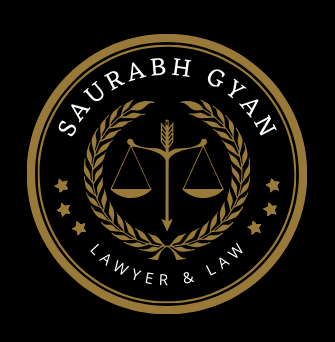The Madras High Court has mandated that all lawyers, including Senior Advocates, registered with the Bar Council of Tamil Nadu and Puducherry, must pay junior lawyers a monthly stipend between ₹15,000 and ₹20,000. The directive aims to ensure young lawyers are compensated fairly and valued in their profession.
The court emphasised the duty of all legal professionals to foster a respectful environment. The TN Bar Council is instructed to inform all members of this order, ensuring no gender-based discrimination in stipend payments. This decision, part of a petition by Farida Begam, highlights the need for financial support for junior lawyers to prevent exploitation and recognise their contributions to the legal community.
Government of NCT of Delhi & Anr. v. M/s BSK Realtors LLP & Anr. (and connected matters): Res Judicata May Not Apply Strictly When Public Interest is at Stake
In a landmark decision, the Supreme Court ruled that the principle of res judicata may not strictly apply when public interest is at stake. This verdict emerged from a series of land acquisition cases involving the Delhi government under the 1894 Land Acquisition Act. The bench, comprising Justices Surya Kant, Dipankar Datta, and Ujjal Bhuyan, highlighted the need for a flexible judicial approach in matters of significant public interest.
This decision stemmed from disputes where landowners challenged the acquisition process, leading to varied judicial outcomes. The Supreme Court emphasized that prior rulings do not necessarily bar subsequent litigation in cases involving overarching public interest, ultimately favouring the Delhi government and its entities.
HDFC Ergo General Insurance Co. Ltd. v Mota Ram: Limited Jurisdiction In Appeals U/S 30 Workmen Compensation Act, Can’t Re-Appreciate Evidence Or Venture Fact Finding
The Rajasthan High Court reiterated that its jurisdiction under Section 30 of the Workmen’s Compensation Act is limited to substantial questions of law and does not extend to re-appreciating evidence or fact-finding. Justice Narendra Singh Dhaddha emphasised that the Workmen Compensation Commissioner is the final authority on factual matters.
The case arose when HDFC Ergo General Insurance Co. Ltd. appealed a decision by the Workmen Compensation Commissioner. The insurance company contested various factual findings, but the respondent argued that no substantial question of law was involved. Citing Supreme Court rulings in Golla Rajanna v The Divisional Manager and North East Karnataka Transport Corporation v Smt. Sujatha, the court underscored that the scope of appeal is restricted to substantial legal questions, not factual disputes.
The court concluded that since no substantial question of law was raised, it found no reason to interfere with the Commissioner’s decision and dismissed the appeal.
State of Gujarat Versus Shashikant Gordhanbhai Patel & Ors.: Oral Dying Declaration Can Form Basis for Conviction If Deponent of Fit Mind and Truthful
In a recent judgment, the Gujarat High Court upheld the acquittal of an accused in a murder case, highlighting the necessity for corroboration of an oral dying declaration. The division bench of Justices Ilesh J Vohra and Niral R Mehta stated that while an oral dying declaration can form the basis of a conviction if the deponent is fit and truthful, prudence dictates seeking corroboration to ensure reliability.
The case involved the 1997 murder of Ranchhodbhai and his son Arvind, allegedly by Shashikant Patel and others. Arvind’s oral dying declaration to a police witness was doubted due to the lack of corroboration and his critical state. The Court found no error in the Trial Court’s decision to acquit the accused, agreeing that the oral declaration alone was insufficient for conviction.
Annegowda vs. State By Yeshvanthapura Police Station & Others: Accused Need Not Be Heard By Magistrate Before Directing Police to Carry Out Further Investigation U/S 173(8) CrPC
The Karnataka High Court, led by Justice K. Natarajan, ruled that a Magistrate can direct further investigation under Section 173(8) of Cr.P.C. without notifying the accused. This decision came after dismissing Aneegowda’s petition against a Magistrate’s order permitting further investigation into charges under Sections 201 and 420 of IPC. The court emphasised that the absence of notice to the accused does not invalidate the Magistrate’s order.
The case stemmed from a private complaint leading to an FIR and subsequent charge sheet against Aneegowda. Despite objections, the Magistrate allowed further investigation based on an application by the Assistant Public Prosecutor. The court referred to Supreme Court judgments, confirming that a Magistrate retains the authority to direct further investigation for fair proceedings, even after the trial has commenced.
The court concluded that the petitioner failed to provide valid grounds to quash the Magistrate’s order, upholding the decision to allow further investigation.
